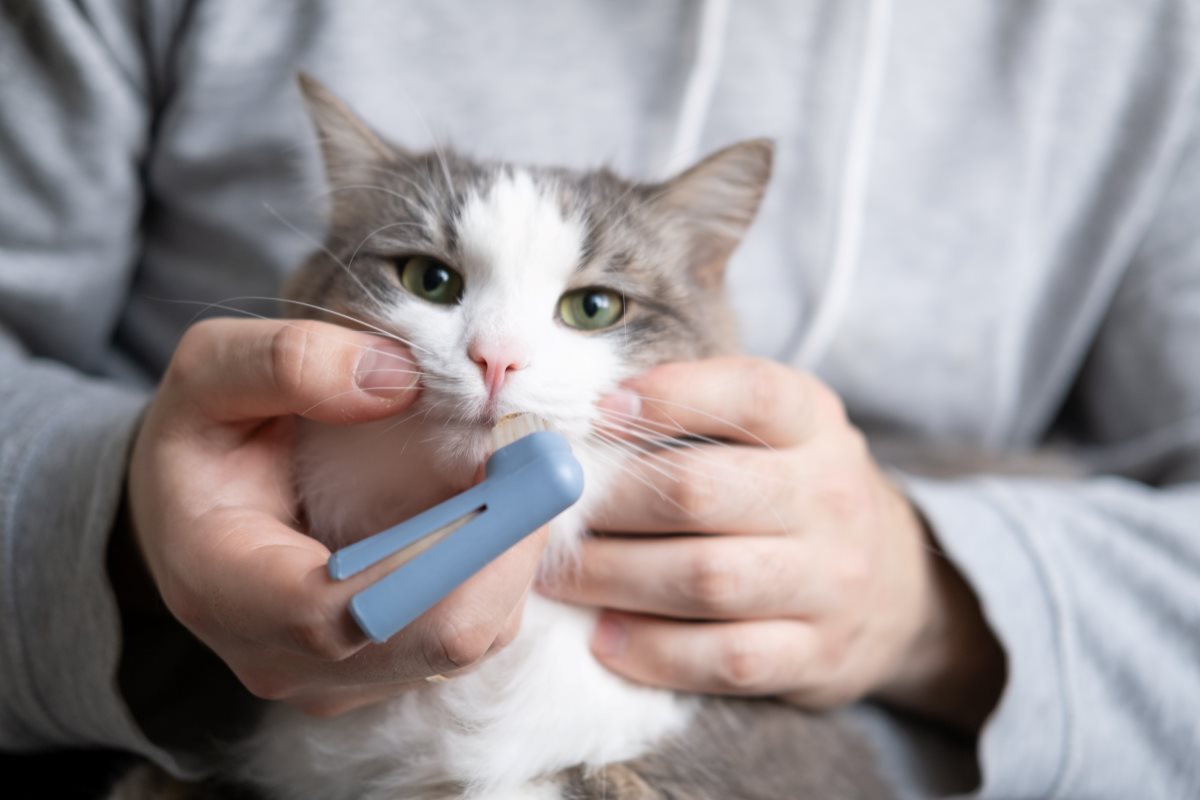
08 Dec How Often Should You Brush Your Cat’s Teeth?
Maintaining your cat’s dental health is essential for their overall well-being. Just like humans, cats can experience dental issues such as plaque buildup, tartar, and gum disease. Regularly brushing your cat’s teeth can help prevent these problems and ensure that your feline friend enjoys a healthy and pain-free mouth. But how often should you brush your cat’s teeth? Let’s explore some essential guidelines and tips to help you keep your cat’s teeth in excellent condition.
The Importance of Brushing Your Cat’s Teeth
Regular dental care is crucial for your cat’s health. Without proper attention, plaque and tartar can accumulate, leading to gum disease, tooth decay, and potential pain for your cat. Poor dental health can also result in other health issues as bacteria from the mouth can enter the bloodstream. Periodontal disease can affect vital organs such as the heart and kidneys. By establishing a consistent dental care routine, you can help prevent these complications and ensure your cat’s overall well-being.
How Often Should You Brush Your Cat’s Teeth?
The frequency of brushing your cat’s teeth can vary depending on various factors, including their age, breed, and overall dental health. While daily brushing is ideal, it might not always be practical. As a general guideline, it’s recommended to brush your cat’s teeth daily but 2-3 times per week may maintain a good level of oral hygiene. Consistency is key, and even a few times a week can significantly reduce the risk of dental issues.
Tips for Brushing Your Cat’s Teeth
Brushing your cat’s teeth might seem like a daunting task, especially if your feline friend is not accustomed to it. However, with patience and practice, you can make it a manageable and stress-free experience for both you and your cat. Here are some useful tips to help you get started:
- Start slowly: Introduce your cat to the idea of tooth brushing gradually. Begin by gently touching their mouth and teeth to get them comfortable with the sensation.
- Use a specialized cat toothbrush and toothpaste: Never use human toothpaste, as it can be harmful to your cat. Instead, opt for a toothbrush and toothpaste designed specifically for feline dental care. A list of clinically approved products can be found on the VOHC.org website.
- Establish a routine: Try to incorporate tooth brushing into your cat’s daily routine to make it a familiar and expected activity. Consistency will help your cat become more cooperative over time.
- Reward your cat: Offer positive reinforcement, such as treats or praise, to create a positive association with tooth brushing.
Additional Dental Care Tips for Cats
In addition to regular tooth brushing, there are other ways you can support your cat’s dental health:
- Provide dental treats or toys designed to promote healthy teeth and gums.
- Schedule regular veterinary check-ups to monitor your cat’s dental health and address any potential issues early on.
- Maintain a balanced diet that supports your cat’s overall health, including their dental well-being.
Cat Dentist in Knoxville, TN
If you have any concerns about your cat’s teeth or have any questions about brushing your cat’s teeth, give us a call today and book an appointment for your pet. Cats should have regular dental cleanings, just like humans, so that their teeth, gums, and mouth stay healthy and clean!




